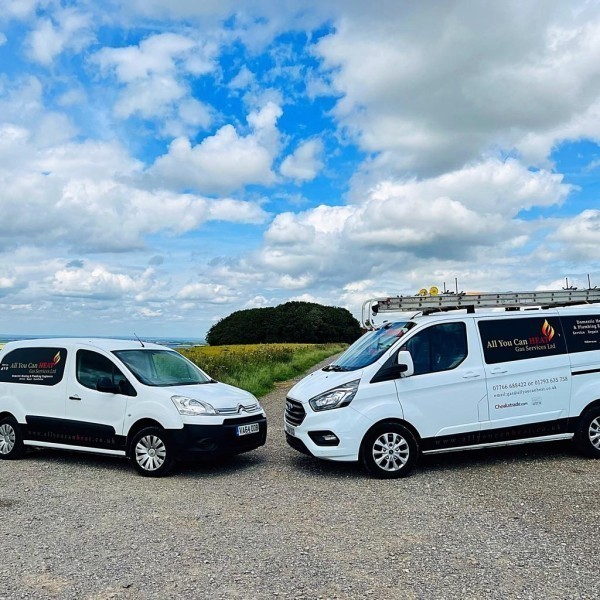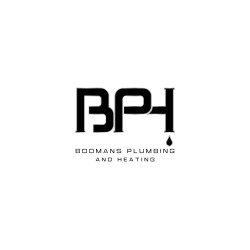Introduction to Boiler/Heating Engineers in Bradford-On-Avon
Bradford-On-Avon, a picturesque town nestled in the heart of Wiltshire, is known for its charming architecture and rich history. As with any town, the need for efficient heating solutions is paramount, especially during the chilly months. This is where boiler and heating engineers come into play. These skilled professionals ensure that homes and businesses remain warm and comfortable, providing essential services that keep the community thriving.
The Role of Boiler/Heating Engineers
Boiler and heating engineers are the unsung heroes of modern comfort. They are responsible for installing, maintaining, and repairing heating systems, ensuring that they operate efficiently and safely. In Bradford-On-Avon, these engineers play a crucial role in maintaining the town's infrastructure, working on both residential and commercial properties.
Installation Services
One of the primary responsibilities of boiler and heating engineers is the installation of new systems. This involves selecting the appropriate boiler type, ensuring it meets the property's needs, and installing it with precision. Engineers must be knowledgeable about the latest technologies and energy-efficient solutions to provide the best service possible.
Maintenance and Repairs
Regular maintenance is key to prolonging the life of a heating system. Engineers conduct routine checks, clean components, and replace worn parts to prevent breakdowns. When issues do arise, they are adept at diagnosing and repairing problems swiftly, minimising disruption to the household or business.
Qualifications and Training
Becoming a boiler/heating engineer requires a combination of formal education and hands-on experience. In the UK, engineers typically undergo apprenticeships, gaining practical skills while studying for relevant qualifications. Certifications such as Gas Safe registration are mandatory, ensuring that engineers adhere to safety standards and regulations.
Continuing Professional Development
The field of heating engineering is ever-evolving, with new technologies and regulations emerging regularly. Engineers in Bradford-On-Avon must engage in continuous professional development to stay current. This includes attending workshops, completing additional certifications, and staying informed about industry trends.
Choosing the Right Boiler/Heating Engineer in Bradford-On-Avon
Selecting the right engineer for your heating needs is crucial. With numerous options available, it's important to consider several factors to ensure you receive quality service.
Experience and Reputation
Experience is a key indicator of an engineer's capability. Look for professionals with a proven track record in the industry. Additionally, reputation matters. Seek recommendations from friends, family, or online reviews to gauge the reliability and quality of service provided by the engineer.
Certifications and Accreditations
Ensure that the engineer holds the necessary certifications, such as Gas Safe registration. This not only guarantees their competence but also ensures compliance with safety standards. Accreditations from reputable organisations can further validate their expertise.
Cost and Value
While cost is a significant consideration, it shouldn't be the sole factor in your decision. Compare quotes from multiple engineers, but also consider the value they offer. A slightly higher price may be justified by superior service, better materials, or extended warranties.
Customer Service
Excellent customer service is a hallmark of a reputable engineer. They should be responsive, communicative, and willing to address any concerns you may have. A professional who prioritises customer satisfaction is likely to deliver a better overall experience.
Common Heating Systems in Bradford-On-Avon
Understanding the types of heating systems available can help you make informed decisions about your home's heating needs. In Bradford-On-Avon, several systems are commonly used.
Gas Boilers
Gas boilers are a popular choice due to their efficiency and cost-effectiveness. They use natural gas to heat water, which is then circulated through radiators or underfloor heating systems. Modern gas boilers are highly efficient, reducing energy consumption and lowering utility bills.
Combi Boilers
Combi boilers are a type of gas boiler that provides both heating and hot water on demand. They are compact and ideal for smaller homes, as they don't require a separate hot water cylinder. This makes them a convenient and space-saving option.
Oil Boilers
In areas where natural gas is not available, oil boilers are a viable alternative. They operate similarly to gas boilers but use oil as the fuel source. While they may have higher running costs, they are a reliable option for rural properties.
Electric Boilers
Electric boilers are another alternative, especially in homes without access to gas or oil. They are easy to install and maintain, though they can be more expensive to operate due to electricity costs. However, they are an environmentally friendly option when paired with renewable energy sources.
Energy Efficiency and Environmental Impact
With growing awareness of environmental issues, energy efficiency has become a top priority for homeowners and businesses alike. Boiler and heating engineers in Bradford-On-Avon are at the forefront of promoting sustainable practices.
Energy-Efficient Solutions
Modern boilers are designed to be highly efficient, converting more fuel into usable heat. Engineers can recommend and install systems that maximise efficiency, such as condensing boilers, which recover heat from exhaust gases.
Renewable Energy Integration
Integrating renewable energy sources, such as solar panels or heat pumps, can further enhance a heating system's efficiency. Engineers can advise on the best solutions for your property, helping to reduce your carbon footprint and energy bills.
Government Incentives
The UK government offers various incentives to encourage the adoption of energy-efficient technologies. These include grants, tax credits, and rebates for installing qualifying systems. Engineers can guide you through the process, ensuring you take full advantage of these opportunities.
Environmental Responsibility
By choosing energy-efficient systems and renewable energy sources, you contribute to a more sustainable future. Engineers in Bradford-On-Avon are committed to helping clients make environmentally responsible choices, aligning with global efforts to combat climate change.
Challenges Faced by Boiler/Heating Engineers
While boiler and heating engineers provide invaluable services, they also face several challenges in their line of work.
Technological Advancements
The rapid pace of technological advancements requires engineers to continually update their skills and knowledge. Staying abreast of new developments is essential to provide the best service and maintain a competitive edge.
Regulatory Compliance
Compliance with regulations is a constant challenge. Engineers must navigate a complex landscape of safety standards, environmental regulations, and industry codes. This requires meticulous attention to detail and a commitment to ongoing education.
Weather-Related Challenges
Weather conditions can impact the demand for heating services. During harsh winters, engineers may face increased workloads and pressure to complete repairs quickly. Conversely, milder weather can lead to reduced demand, affecting business stability.
Customer Expectations
Meeting customer expectations is crucial for success. Engineers must balance technical expertise with excellent customer service, ensuring clients are satisfied with the work performed. This can be challenging, especially when dealing with complex or unexpected issues.
The Future of Boiler/Heating Engineering in Bradford-On-Avon
The future of boiler and heating engineering in Bradford-On-Avon looks promising, with several trends shaping the industry.
Smart Technology Integration
Smart technology is revolutionising the heating industry. Engineers are increasingly incorporating smart thermostats and home automation systems, allowing homeowners to control their heating remotely and optimise energy usage.
Focus on Sustainability
Sustainability is a growing focus, with engineers prioritising energy-efficient solutions and renewable energy integration. This trend is expected to continue, driven by consumer demand and regulatory pressures.
Training and Development
As the industry evolves, the need for skilled engineers will grow. Training and development will be crucial to ensure a steady supply of qualified professionals. Apprenticeships, certifications, and ongoing education will play a vital role in meeting this demand.
Community Engagement
Boiler and heating engineers are integral to the community, and their role is likely to expand. Engaging with the community through educational initiatives and sustainability projects can enhance their reputation and foster trust.
Frequently Asked Questions
- What qualifications do boiler/heating engineers need? Engineers typically need an apprenticeship, relevant qualifications, and Gas Safe registration.
- How often should I service my boiler? It's recommended to service your boiler annually to ensure efficiency and safety.
- What are the benefits of a combi boiler? Combi boilers are compact, provide hot water on demand, and are energy-efficient.
- Can I install a boiler myself? No, boiler installation should be performed by a qualified engineer to ensure safety and compliance.
- What is a condensing boiler? A condensing boiler is a high-efficiency boiler that recovers heat from exhaust gases.
- Are there government incentives for energy-efficient heating systems? Yes, the UK government offers various incentives, including grants and rebates, for qualifying systems.
In conclusion, boiler and heating engineers in Bradford-On-Avon are essential to maintaining the comfort and safety of homes and businesses. Their expertise, commitment to quality, and focus on sustainability ensure that the community remains warm and energy-efficient, now and in the future.












